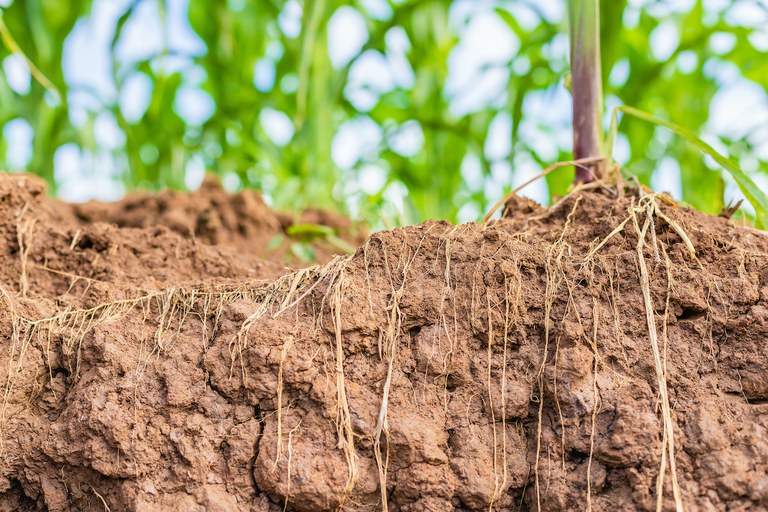A common soil fungus can help corn growers control insect pests naturally
Problem
How can we reduce the risk for growers transitioning to organic production?
- The United States is the largest producer and exporter of corn in the world, but nearly half of its organic corn supply is imported.
- Risks posed in managing insects and weeds without conventional pesticides often deter producers from transitioning their fields to organic corn production.
Findings
An interdisciplinary team inoculated seeds of corn with spores of the soil fungus Metarhizium robertsii to study how natural processes already occurring in the plant's roots and soil impact pest pressures and plant growth.
- Colonized plants grew taller and produced more aboveground biomass compared to control plants.
- The beneficial fungus also boosted the expression of plant defense genes.
Impact
This research demonstrates that corn growers, especially organic corn growers, can benefit from managing their fi elds to promote this naturally occurring fungus. Their continued research could help to develop new seed treatments that would provide for organic farmers:
- Safe, cost-effective, and ecofriendly methods for leveraging a plant's natural defenses to cope with stresses
- Practices that can foster symbiotic relationships with microbes already present in the soil
Related Research Areas: Environmental Resilience, Advanced Agricultural and Food Systems
Research Credit
Team
- Mary Barbercheck, Imtiaz Ahmad, María del Mar Jiménez-Gasco, Dawn Luthe, Samina Shakeeld
Participating Departments
Competitive Funding
- USDA NIFA (Organic Transitions Program), Organic Farming Research Foundation
Federal and State Appropriations
Emerging Discoveries
Published Research
Endophytic Metarhizium robertsii promotes maize growth, suppresses insect growth, and alters plant defense gene expression
-
Ahmad, I., Jiménez-Gasco, M. D. M., Luthe, D. S., Shakeel, S. N., & Barbercheck, M. E. (2020). Endophytic Metarhizium robertsii promotes maize growth, suppresses insect growth, and alters plant defense gene expression. Biological Control, 144, [104167]. https://doi.org/10.1016/j.biocontrol.2019.104167
Emerging Discovery
Office for Research and Graduate Education
Address
217 Agricultural Administration BuildingUniversity Park, PA 16802-2600
- Email agresearch@psu.edu
- Office 814-865-3136
Emerging Discovery
Office for Research and Graduate Education
Address
217 Agricultural Administration BuildingUniversity Park, PA 16802-2600
- Email agresearch@psu.edu
- Office 814-865-3136





